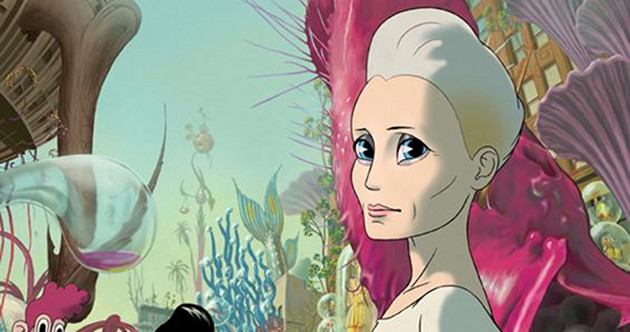The Congress
Memo to bombastic directors who come up with ill-digested “Philosophy for Dummies” concepts on the nature of love and life in hardly watchable films (e.g. Terrence Malick’s “Tree of Life”): Don’t. Unfortunately, chances are they won’t listen and will continue to come up with these half-baked offerings to convey a message so obscure we don’t get it.
Case in point, “The Congress.”
But before talking about that movie, note to self: Never assume that a director who gave us a masterpiece as first film will follow up with something half as good. High expectations set us up for big disappointments. So we’re mad when Florian Henckel von Donnersmarck, author of the superlative “The Lives of Others,” hits us with a dud like “The Tourist” or when Ari Folman who in 2008 gave us the magnificent “Waltz with Bashir” makes “The Congress.” It may not be fair to hold people up to permanent high standards but I would rather not repeat too often the unhappy experience of walking in the theater as an unconditional fan, buy a ticket for no other reason that the first film was so good, and then fidget in the dark for two boring hours.
“The Congress,” beside being meandering and long, goes nowhere. It takes a scanned aging actress played by Robin Wright (her face an inspired-looking mask that is getting more set with each film—and isn’t she in everything these days?) who has basically signed her life away in a contract with the villainous Miramount Productions, to a futuristic congress where we’re all animated copies of ourselves and a variety of drugs help us enjoy life to the fullest (now there’s a new concept). She looks for her son, she floats among weird plants with tentacles and rocket-powered buildings that fly off, along with kites—yet another metaphor for something or other—she walks in streets filled with people we’re supposed to recognize and do—Frida Kahlo, Picasso, The Scream and other look-alikes, all in bright Technicolor. After which, still looking for her son, she decides to cross back over and returns to the real world to find that humankind is more wretched and gray and filthy than in “Soylent Green,” and any number of films since.



